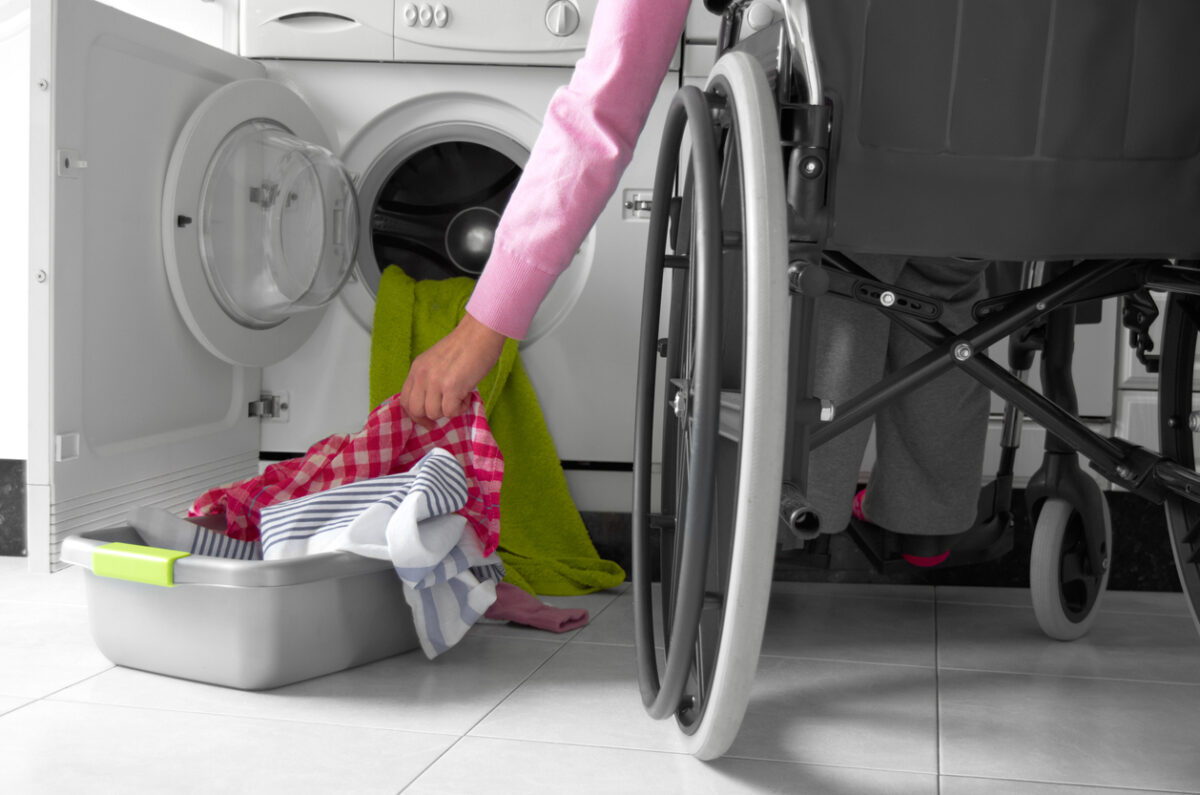

We may earn revenue from the products available on this page and participate in affiliate programs. Learn More ›
Q: I’ve been looking for creative ways to save money at home. I heard that doing laundry during certain times of the day is actually less expensive. Is this true? If so, what is the best time to do laundry?
A: With all of the laundry homeowners do, you’re not alone in looking to reduce your energy costs for each load. While it may be hard to believe, choosing the right laundry time can make an impact on your energy costs. Chances are your energy company doesn’t have fixed rates for energy usage. Rather, the rates they charge can vary based on the time of day and demand.
Read on to learn more about the best time to do laundry, along with a few additional tips to save even more money on laundry day.
RELATED: The Best Washers and Dryers Today
Avoid doing laundry during peak hours.
Utility companies know which times energy consumption is at its highest in a given area. When more pressure is placed on the power grid, it can cost your energy company more to provide electricity to all of its customers. Energy companies pass this increased expense off to customers by charging more for energy consumed during these peak hours. Additionally, having higher rates during peak hours is also designed to incentivize customers to choose alternate times for energy usage to decrease their bills, and thus, remove some pressure from the power grid.
Many people unknowingly make the mistake of doing their laundry during these peak hours. So, what time of day is best to do laundry? Unfortunately, giving a blanket answer on when to do laundry isn’t possible. The peak hours to do laundry can vary by region and by season.
Below is more information on the general peak hours for the summer and winter months, but keep in mind that these times could vary slightly in your area.
Summer Peak Hours
Peak hours in the summer are typically between about 10 a.m. and 8 p.m. due to the increased need for air conditioning during these times. If possible, try to wash your laundry earlier in the morning or after 8 p.m. for the greatest energy savings.
Winter Peak Hours
Winter peak hours are earlier in the morning, between about 7 a.m. and 9 a.m. During these hours, individuals are turning their heat up to warm up their home after the cold night. For this reason, if you choose to wash your laundry later in the day, especially in the evening, it can help you save money.
RELATED: Why Is My Electric Bill So High?
The cheapest time to do laundry is during off-peak hours.

As mentioned above, the best time to do laundry to save energy is during a non-peak times. Avoid the seasonally specific peak hours shared above, as well as the hours between 4 p.m. and 8 p.m., when people are getting home from work and using high-demand appliances.
Beyond this general information, you can gain even more specific knowledge related to your particular area by reaching out to your energy provider. They can share the peak hours for your area to help you determine the best time to wash your laundry. Searching for “peak hours” with the name of your energy company may pull up the information you need to find the answer to the question yourself.
Beyond these standard peak hours, many energy companies also offer peak savings days. Decreasing your energy usage on these pre-identified days can help you earn a credit on your bill. If you’re unsure whether or not your energy provider offers this benefit, visit their website or reach out to them to learn more.
When you’re planning your schedule to avoid peak hours, don’t forget to also think about how long laundry takes. A full load of laundry takes an average of about 80 minutes to go through the washer and dryer, so make sure you start your load of laundry early enough to finish before peak hours begin.
Additional Tips for Saving Money on Laundry Day

Determining the cheapest time to do laundry is important, but it isn’t the only way you can reduce your laundry-related costs. Below are a few additional tips to help you save money when doing your laundry:
- Wash your items in cold water: Washing your clothing in cold water can help reduce energy costs while also helping keep their colors vibrant and preventing the items from shrinking. When you wash clothes with hot water, nearly three-quarters of the energy consumed is for heating the water.
- Wash full loads: Try to wash full loads whenever possible. Washing one large load of laundry will consume less energy than washing three—or more—smaller loads.
- Hang clothes and linens to dry: You can also cut back on your energy costs by line-drying your clothing and linens. Even if the outside weather isn’t conducive to hang-drying, make your laundry room work for you with some well-placed drying racks or clotheslines.
- Choose an energy-saving drying mode: Many dryers offer moisture-sensing settings. These settings detect the amount of moisture present in each load of laundry. Once no more moisture is detected, the drying cycle will automatically end.
- Keep the lint trap clean: Cleaning the lint trap of the dryer can decrease the risk of fire, but it can also help make the unit more efficient. When the lint trap is clean, air is better able to circulate through the machine, which helps to dry clothing more quickly.
RELATED: My Dryer Won’t Start—What’s the Problem, and How Do I Fix It?
